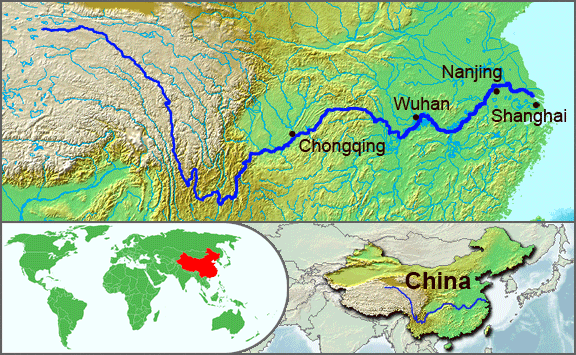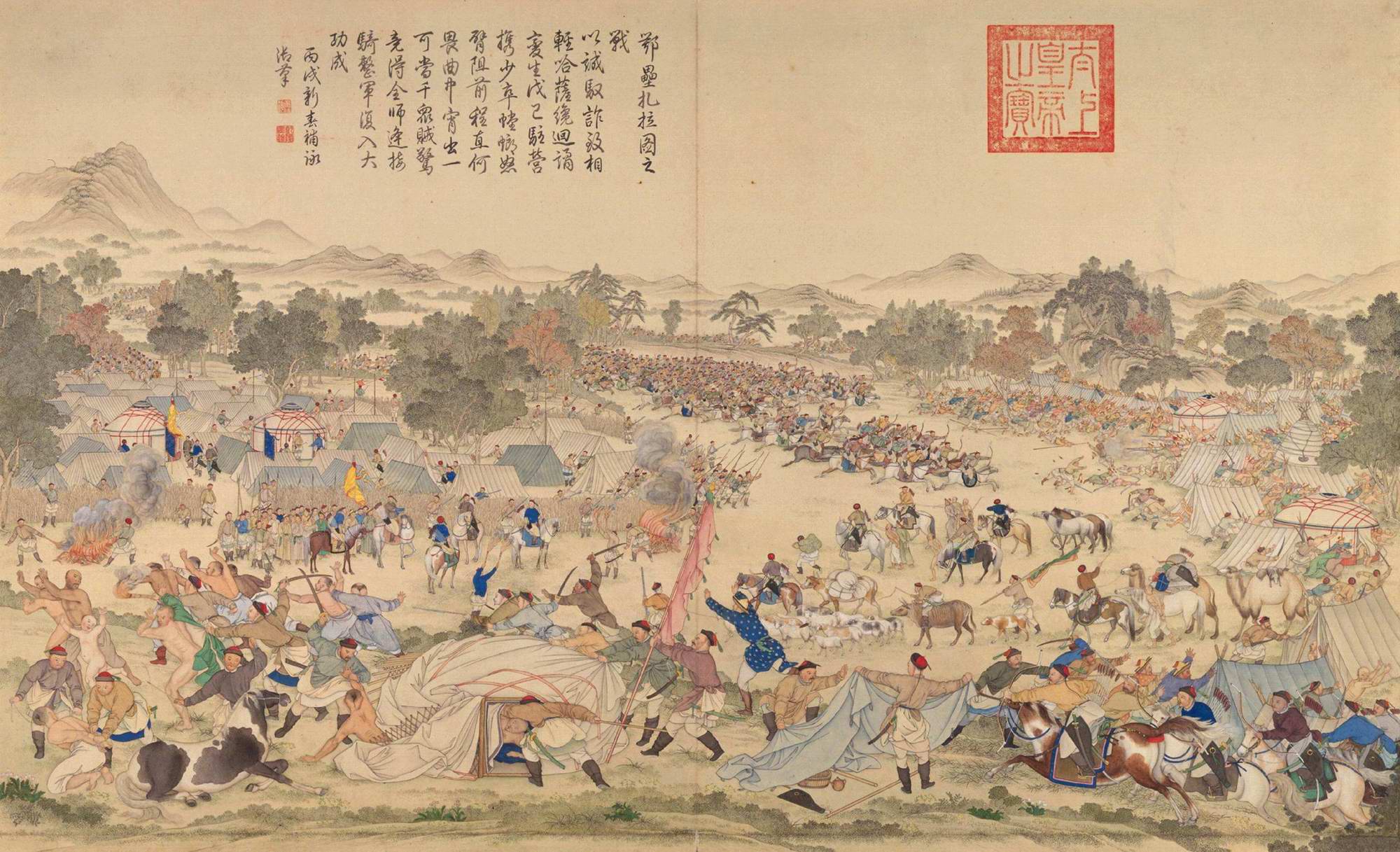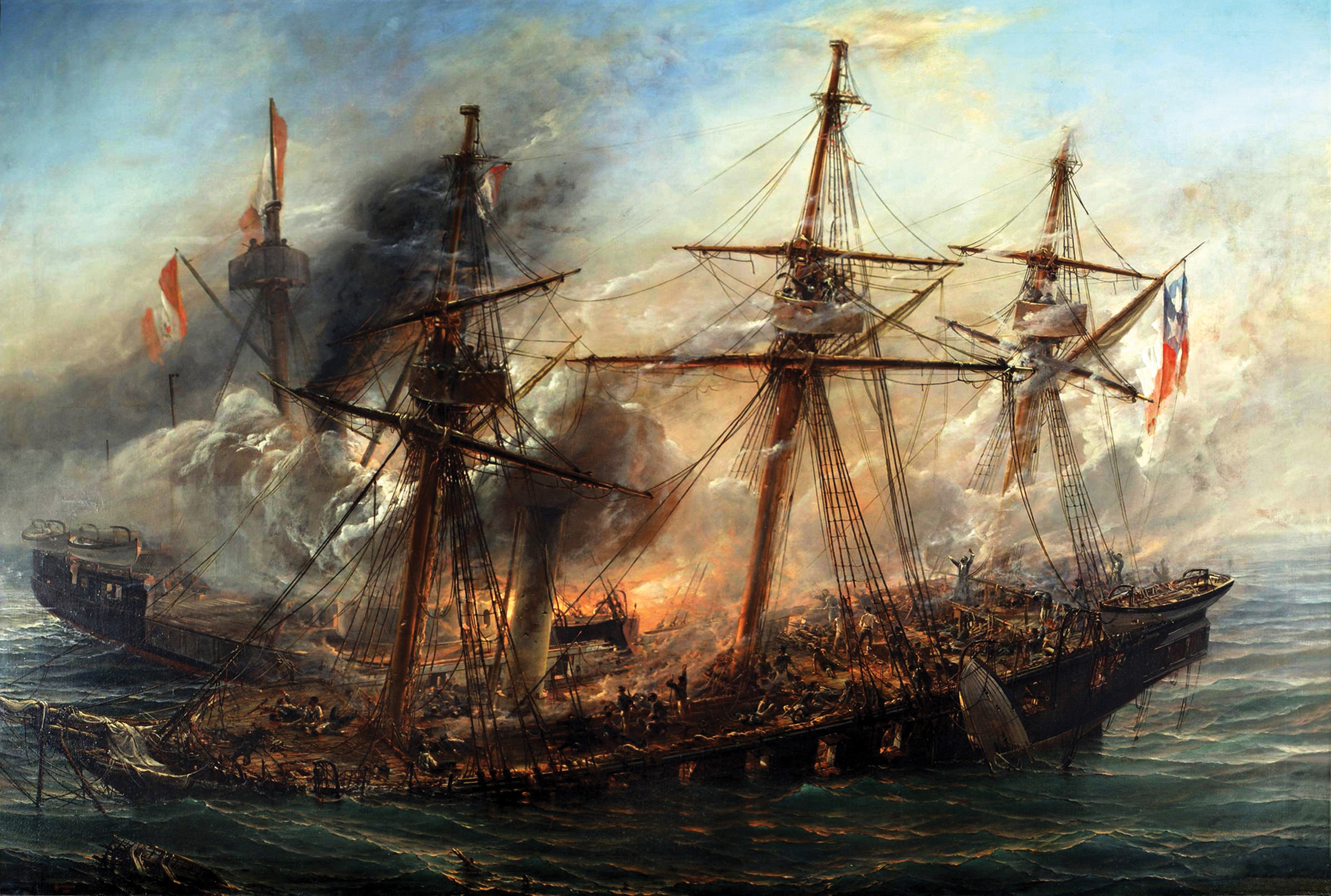|
USS Monocacy Incident
The USS ''Monocacy'' incident was an attack on the American gunboat in January 1918 by Chinese soldiers along the Yangtze River. It was one of many incidents at the time involving armed Chinese firing on foreign vessels. Background At the beginning of World War I, the European nations with flotillas on the Yangtze withdrew their vessels to reinforce their fleets in Europe. This left the Yangtze Patrol with the only Western naval presence on the river. China was initially a neutral country during the war, as was the United States. But when the American government declared war on Germany in April 1917, a now belligerent flotilla of American ships occupied the neutral Chinese waters. As a result, the Yangtze Patrol was interned at Shanghai. The attack on ''Monocacy'' occurred in January 1918, just after the Yangtze Patrol was released from internment upon China's declaration of war on Germany. Though America and China were allies, skirmishes between armed Chinese and foreigners ... [...More Info...] [...Related Items...] OR: [Wikipedia] [Google] [Baidu] |
Yangtze Patrol
The Yangtze Patrol, also known as the Yangtze River Patrol Force, Yangtze River Patrol, YangPat and ComYangPat, was a prolonged naval operation from 1854–1949 to protect American interests in the Yangtze River's treaty ports. The Yangtze Patrol also patrolled the coastal waters of China where they protected U.S. citizens, their property, and Christian missionaries. The Yangtze River is the longest river in China and it plays an important commercial role, with ocean-bound vessels proceeding as far upstream as the city of Wuhan. This squadron-sized unit cruised the waters of the Yangtze from Shanghai on the Pacific Ocean into the far interior of China at Chungking. Initially, the Yangtze Patrol was formed from ships of the United States Navy and assigned to the East India Squadron. In 1868, patrol duties were carried out by the Asiatic Squadron of the United States Navy. Under the unequal treaties, the United States, Japan, and various European powers, especially the United ... [...More Info...] [...Related Items...] OR: [Wikipedia] [Google] [Baidu] |
Small Arms
A firearm is any type of gun designed to be readily carried and used by an individual. The term is legally defined further in different countries (see Legal definitions). The first firearms originated in 10th-century China, when bamboo tubes containing gunpowder and pellet projectiles were mounted on spears to make the portable fire lance, operable by a single person, which was later used effectively as a shock weapon in the Siege of De'an in 1132. In the 13th century, fire lance barrels were replaced with metal tubes and transformed into the metal-barreled hand cannon. The technology gradually spread throughout Eurasia during the 14th century. Older firearms typically used black powder as a propellant, but modern firearms use smokeless powder or other propellants. Most modern firearms (with the notable exception of smoothbore shotguns) have rifled barrels to impart spin to the projectile for improved flight stability. Modern firearms can be described by their caliber (i.e ... [...More Info...] [...Related Items...] OR: [Wikipedia] [Google] [Baidu] |
Conflicts In 1918
Conflict may refer to: Arts, entertainment, and media Films * ''Conflict'' (1921 film), an American silent film directed by Stuart Paton * ''Conflict'' (1936 film), an American boxing film starring John Wayne * ''Conflict'' (1937 film), a Swedish drama film directed by Per-Axel Branner * ''Conflict'' (1938 film), a French drama film directed by Léonide Moguy * ''Conflict'' (1945 film), an American suspense film starring Humphrey Bogart * ''Catholics: A Fable'' (1973 film), or ''The Conflict'', a film starring Martin Sheen * ''Judith'' (1966 film) or ''Conflict'', a film starring Sophia Loren * ''Samar'' (1999 film) or ''Conflict'', a 1999 Indian film by Shyam Benegal Games * ''Conflict'' (series), a 2002–2008 series of war games for the PS2, Xbox, and PC * ''Conflict'' (video game), a 1989 Nintendo Entertainment System war game * '' Conflict: Middle East Political Simulator'', a 1990 strategy computer game Literature and periodicals * ''Conflict'' (novel) ... [...More Info...] [...Related Items...] OR: [Wikipedia] [Google] [Baidu] |
Battles Involving China
The following is a list of Chinese wars and battles, organized by date.Xiaobing Li, ''China at War: An Encyclopedia.'' (ABC-CLIO, 2012).excerpt/ref> Ancient China Imperial China Qin dynasty (221–206 BCE) Han dynasty (206 BCE – 220 CE) Chu-Han Contention (206–202 BCE) Western Han (206 BCE – 9 CE) Xin dynasty (9–23 CE) and early Eastern Han (25–36 CE) Eastern Han – middle period (36–184) End of the Han dynasty (184–220) Three Kingdoms period (220–280) Jin dynasty (265–420), the Southern Dynasties (420–587), the Sixteen Kingdoms (304–439) and the Northern Dynasties (386–581) Sui dynasty (581–618) Tang dynasty (618–907) Five Dynasties and Ten Kingdoms Period (907–960) Song dynasty (960–1279) Liao dynasty (907–1125) Jurchen Jin dynasty (1115–1234) Yuan dynasty (1271–1368) Ming dynasty (1368–1644) Qing dynasty (1644–1912) Modern China Yuan Shikai-led Republic of C ... [...More Info...] [...Related Items...] OR: [Wikipedia] [Google] [Baidu] |
Maritime Incidents In 1918
Maritime may refer to: Geography * Maritime Alps, a mountain range in the southwestern part of the Alps * Maritime Region, a region in Togo * Maritime Southeast Asia * The Maritimes, the Canadian provinces of Nova Scotia, New Brunswick, and Prince Edward Island * Maritime County, former county of Poland, existing from 1927 to 1939, and from 1945 to 1951 * Neustadt District, Reichsgau Danzig-West Prussia, known from 1939 to 1942 as ''Maritime District'', a former district of Reichsgau Danzig-West Prussia, Nazi Germany, from 1939 to 1945 * The Maritime republics, Maritime Republics, thalassocratic city-states on the Italian peninsula during the Middle Ages Museums * Maritime Museum (Belize) * Maritime Museum (Macau), China * Maritime Museum (Malaysia) * Maritime Museum (Stockholm), Sweden Music * Maritime (album), ''Maritime'' (album), a 2005 album by Minotaur Shock * Maritime (band), an American indie pop group * The Maritimes (song), "The Maritimes" (song), a song on the 2005 alb ... [...More Info...] [...Related Items...] OR: [Wikipedia] [Google] [Baidu] |
Combat Incidents
Combat (French language, French for ''fight'') is a purposeful violence, violent conflict meant to physically harm or kill the opposition. Combat may be armed (using weapons) or unarmed (Hand-to-hand combat, not using weapons). Combat is sometimes resorted to as a method of self-defense, or can be used as a tool to impose one's will on others. An instance of combat can be a stand-alone confrontation or a small part of a much larger violent conflict. Instances of combat may also be benign and recreational, as in the cases of combat sports and mock combat. Combat may comply with, or be in violation of local or international laws regarding conflict. Examples of rules include the Geneva Conventions (covering the treatment of people in war), medieval chivalry, the Marquess of Queensberry rules (covering boxing) and several forms of combat sports. Hand-to-hand combat Hand-to-hand combat (melee) is combat at very close range, attacking the opponent with the body (Strike (attack), ... [...More Info...] [...Related Items...] OR: [Wikipedia] [Google] [Baidu] |
1918 In China
Events in the year 1918 in China. Incumbents * President of the Republic of China — Feng Guozhang * Warlord Era Events January * January 17 — USS ''Monocacy'' incident was an attack on the American gunboat in January 1918 by Chinese soldiers along the Yangtze River. It was one of many incidents at the time involving armed Chinese firing on foreign vessels. February * January 13 — 1918 Shantou earthquake occurred in Shantou, Kwangtung, Republic of China. It also caused some damage in what was then British Hong Kong. March * March 8 — Wang Yitang and Xu Shuzheng established the Anfu Club. * March 23 — Duan Qirui resigns as Premier of the Republic of China. August * August 12 — Wang Yitang elect Xu Shichang to the presidency in the 1918 presidential election. ( 1918 Republic of China National Assembly election) October * October 10 — Duan Qirui Duan Qirui (; ) (March 6, 1865 – November 2, 1936) was a Chinese warlord and politician, a commander of the Beiy ... [...More Info...] [...Related Items...] OR: [Wikipedia] [Google] [Baidu] |
Battles And Operations Of The Yangtze Patrol
A battle is an occurrence of combat in warfare between opposing military units of any number or size. A war usually consists of multiple battles. In general, a battle is a military engagement that is well defined in duration, area, and force commitment. An engagement with only limited commitment between the forces and without decisive results is sometimes called a skirmish. The word "battle" can also be used infrequently to refer to an entire operational campaign, although this usage greatly diverges from its conventional or customary meaning. Generally, the word "battle" is used for such campaigns if referring to a protracted combat encounter in which either one or both of the combatants had the same methods, resources, and strategic objectives throughout the encounter. Some prominent examples of this would be the Battle of the Atlantic, Battle of Britain, and Battle of Stalingrad, all in World War II. Wars and military campaigns are guided by military strategy, whereas bat ... [...More Info...] [...Related Items...] OR: [Wikipedia] [Google] [Baidu] |
Gunboat Diplomacy
In international politics, the term gunboat diplomacy refers to the pursuit of foreign policy objectives with the aid of conspicuous displays of naval power, implying or constituting a direct threat of warfare should terms not be agreeable to the superior force. Etymology The term "gunboat diplomacy" comes from the nineteenth-century period of imperialism, when Western powersfrom Europe and the United Stateswould intimidate other, less powerful entities into granting concessions through a demonstration of Western superior military capabilities, usually represented by their naval assets. A coastal country negotiating with a Western power would notice that a warship or fleet of ships had appeared off its coast. The mere sight of such power almost always had a considerable effect, and it was rarely necessary for such boats to use other measures, such as demonstrations of firepower. A notable example of gunboat diplomacy, the Don Pacifico affair in 1850, saw the British Foreig ... [...More Info...] [...Related Items...] OR: [Wikipedia] [Google] [Baidu] |
General Sherman Incident
The ''General Sherman'' incident ( ko, 제너럴셔먼호 사건) was the destruction of the American merchant ship '' SS General Sherman'' in the Taedong River during an unsuccessful and illegal attempt by the ship's crew to open up trade with the isolationist Joseon dynasty of Korea. With the rapid increase in Western imperialism in Asia during the 19th century, Asian nations came under increasing pressure to end their isolationist policies. Despite China and Japan being forcibly opened to foreign trade by Western powers, Korea maintained its isolationism. The ''General Sherman'' purchased stocks of cotton textiles, tinware, mirrors and glassware from Tianjin before sailing up the Taedong River. Korean officials informed the ship's captain that he was not allowed to trade in Korea; these instructions were ignored. Eventually, regent Daewongun, believing the ''General Sherman'' to be a French Navy warship on a punitive mission to avenge the deaths of Catholic priests in Ko ... [...More Info...] [...Related Items...] OR: [Wikipedia] [Google] [Baidu] |
Howard LeRoy O'Brien
Howard is an English-language given name originating from Old French Huard (or Houard) from a Germanic source similar to Old High German ''*Hugihard'' "heart-brave", or ''*Hoh-ward'', literally "high defender; chief guardian". It is also probably in some cases a confusion with the Old Norse cognate ''Haward'' (''Hávarðr''), which means "high guard" and as a surname also with the unrelated Hayward. In some rare cases it is from the Old English ''eowu hierde'' "ewe herd". In Anglo-Norman the French digram ''-ou-'' was often rendered as ''-ow-'' such as ''tour'' → ''tower'', ''flour'' (western variant form of ''fleur'') → ''flower'', etc. (with svarabakhti). A diminutive is "Howie" and its shortened form is "Ward" (most common in the 19th century). Between 1900 and 1960, Howard ranked in the U.S. Top 200; between 1960 and 1990, it ranked in the U.S. Top 400; between 1990 and 2004, it ranked in the U.S. Top 600. People with the given name Howard or its variants include: Given ... [...More Info...] [...Related Items...] OR: [Wikipedia] [Google] [Baidu] |





.jpg)
